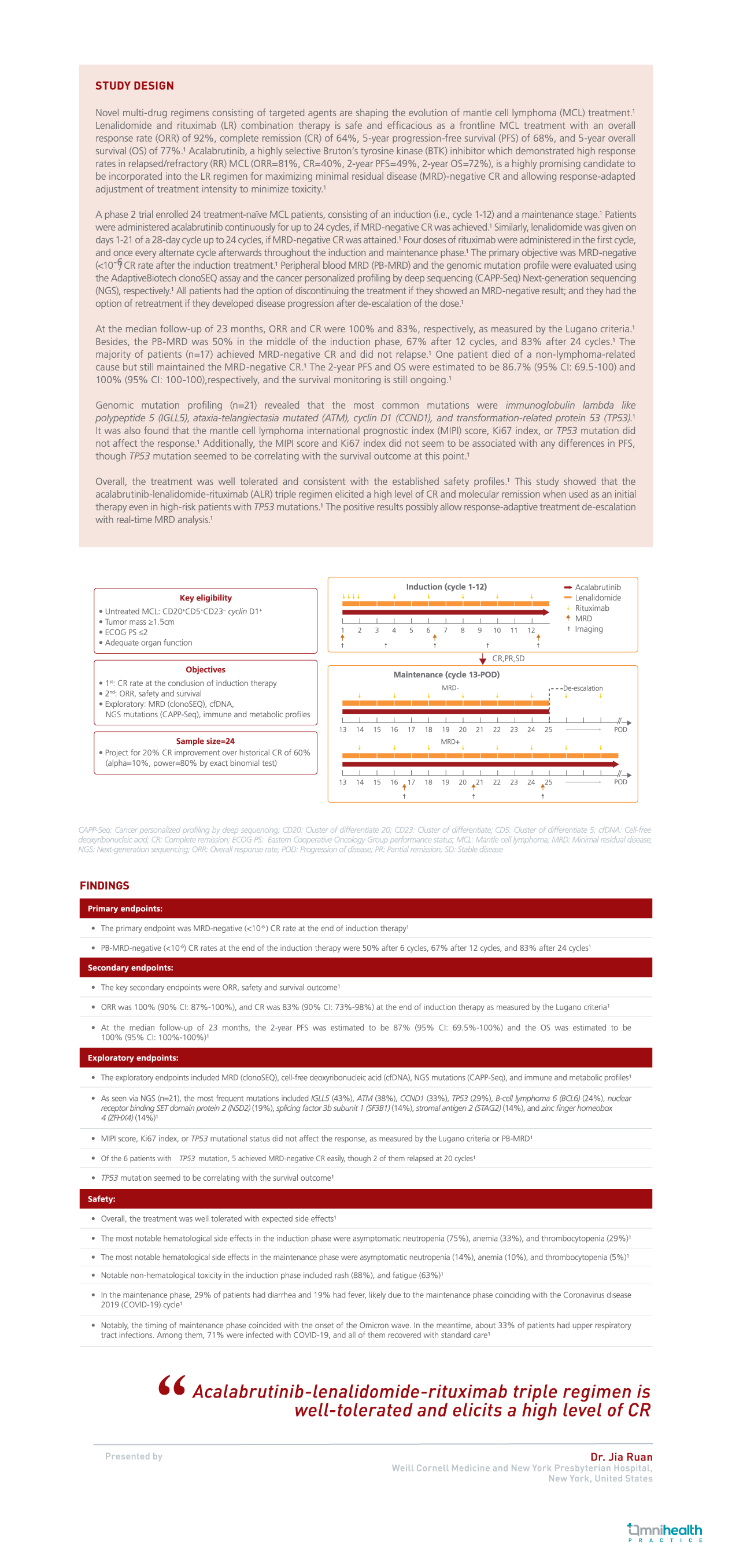CONFERENCE UPDATE: ASH 2023
ALR triple regimen elicits a high CR rate among patients with treatment-naïve MCL and allows treatment de-escalation with real-time RMD monitoring
08 Mar 2023

Related Articles
CONFERENCE UPDATE: ASH 2023
ALR triple regimen elicits a high CR rate among patients with treatment-naïve MCL and allows treatment de-escalation with real-time RMD monitoring
